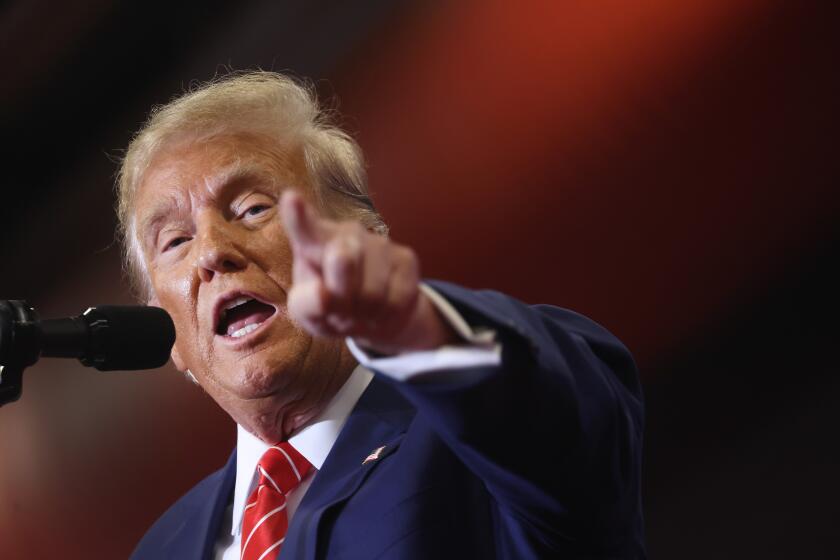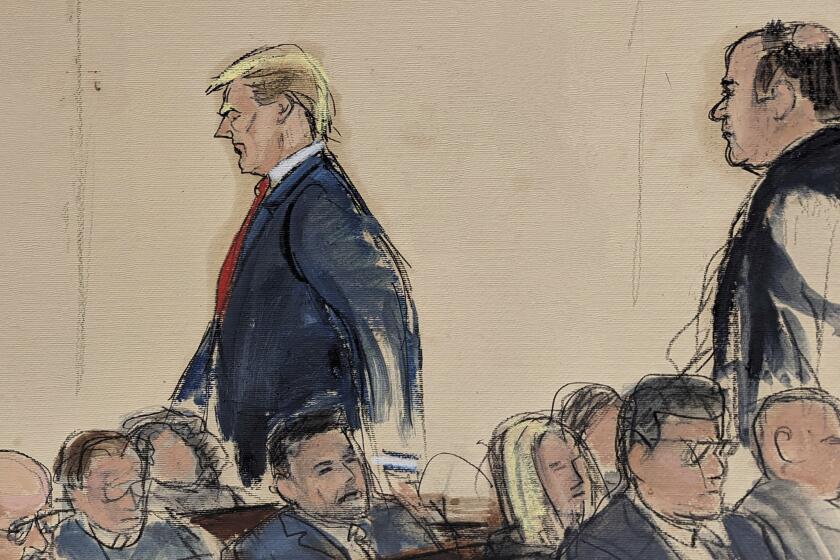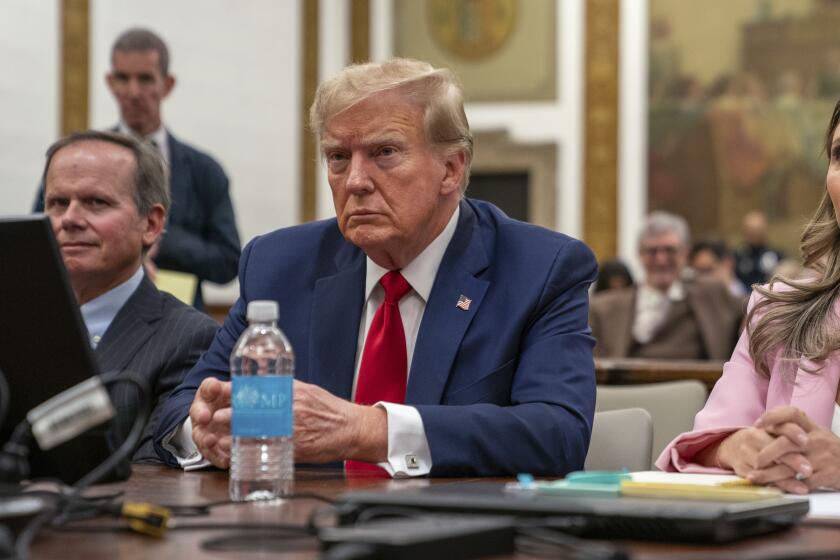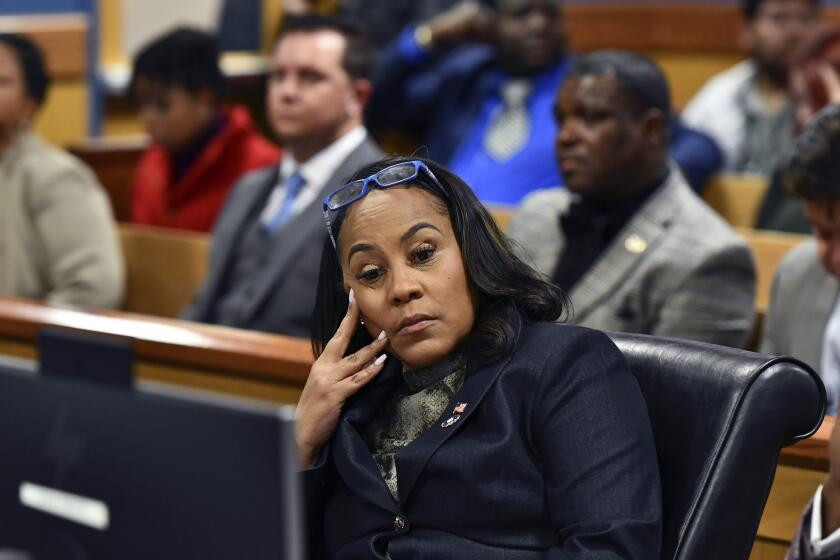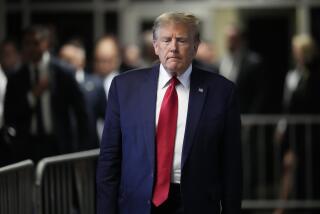What happened with Trump’s trials in January

WASHINGTON — Former President Trump faces four felony criminal trials and several civil trials over the next few months as he’s running for re-election. Having trouble keeping up?
Here are the key developments in Trump’s trials in January.
Delays in the DC election-subversion case
Early in the month, a three-judge panel in Washington held a hearing about Trump’s claim that he is immune from prosecution on criminal charges that he plotted to overturn the results of the 2020 election.
Questions from the U.S. Court of Appeals for the District of Columbia panel indicated the judges were inclined to reject his argument, but what most observers assumed would be a quickly issued opinion has dragged on for weeks. (Trump could still ask the full court to rule and then go to the Supreme Court, causing even more delays.)
The case originally scheduled to begin March 4 has been on hold since December and there has to be time for both sides to file pretrial motions, objections, poll jurors, etc.
The court on Thursday took Trump’s federal election interference trial off its March calendar. A new date has not been listed.
In an oral argument Tuesday, appellate judges appeared to lean against granting former President Trump immunity from prosecution in the Jan. 6 election subversion case.
Millions awarded in E. Jean Carroll’s defamation case
In the middle of the month, a jury heard and decided a second defamation case brought by longtime advice columnist E. Jean Carroll, and quickly awarded her $83.3 million. That amount comes on top of the $5 million a jury awarded her in an initial defamation trial last year in which the jury also found that Trump sexually assaulted Carroll in a Manhattan department store in 1996.
Jurors were asked to decide whether Trump should pay Carroll for two statements he made as president after a magazine published excerpts of Carroll’s memoir. Jurors were not asked to reconsider whether the sexual assault had occurred.
Trump attended much of the trial, unlike the first, even though he was not required to. Trump testified for just over three minutes after the judge limited what he could say, ruling the former president had missed the chance to argue his innocence in the first trial.
Trump is appealing both awards.
Another jury last May found Trump liable for sexual abuse and ordered him to pay $5 million.
Awaiting a verdict in the New York fraud case
Trump is awaiting a verdict from Judge Arthur Engoron in a New York civil fraud trial targeting his business, in which state lawyers seek $370 million after he was found liable for habitually exaggerating his wealth on financial statements he provided to banks, insurance companies and others in order to receive more beneficial loan terms.
State lawyers also seek to ban Trump, his elder sons and the Trump Organization from doing business in New York, where the bulk of his real estate empire is located.
Engoron has already found Trump liable for fraud in the nonjury trial, but the awaited verdict is expected to detail whether the former president violated other laws and the size of the penalty.
The trial has lasted for several months and has included several high tension moments, including two fines from the judge for Trump making unfounded claims about Engoron’s clerk and loud exclamations by Trump, including a lengthy speech during closing arguments.
Former President Trump’s civil fraud trial heads into closing arguments after authorities in New York responded to a bomb threat at the judge’s home.
Questions arise about prosecutors in Georgia election-subversion case
Trump faces similar charges over attempts to stay in power after losing the 2020 election in Fulton County, Georgia. That case has not been scheduled but was in the news in January given allegations from one of Trump’s co-defendants that Dist. Atty. Fani Willis had an inappropriate romantic relationship with a special prosecutor she hired for the case.
An attorney for Trump co-defendant Michael Roman filed a motion seeking to dismiss the indictment and to remove Willis and special prosecutor Nathan Wade from the case. Trump has joined the filing and Fulton County Superior Court Judge Scott McAfee has set a hearing on the matter for Feb. 15.
Neither Willis nor Wade have responded publicly to the allegations but are expected to respond in a court filing due before the hearing.
Georgia district attorney prosecuting Trump has been subpoenaed over claims of improper relationship
A defense attorney who has alleged that Fulton County Dist. Atty. Fani Willis has had an inappropriate romantic relationship with a special prosecutor has called both to testify.
More to Read
Get the L.A. Times Politics newsletter
Deeply reported insights into legislation, politics and policy from Sacramento, Washington and beyond. In your inbox three times per week.
You may occasionally receive promotional content from the Los Angeles Times.

